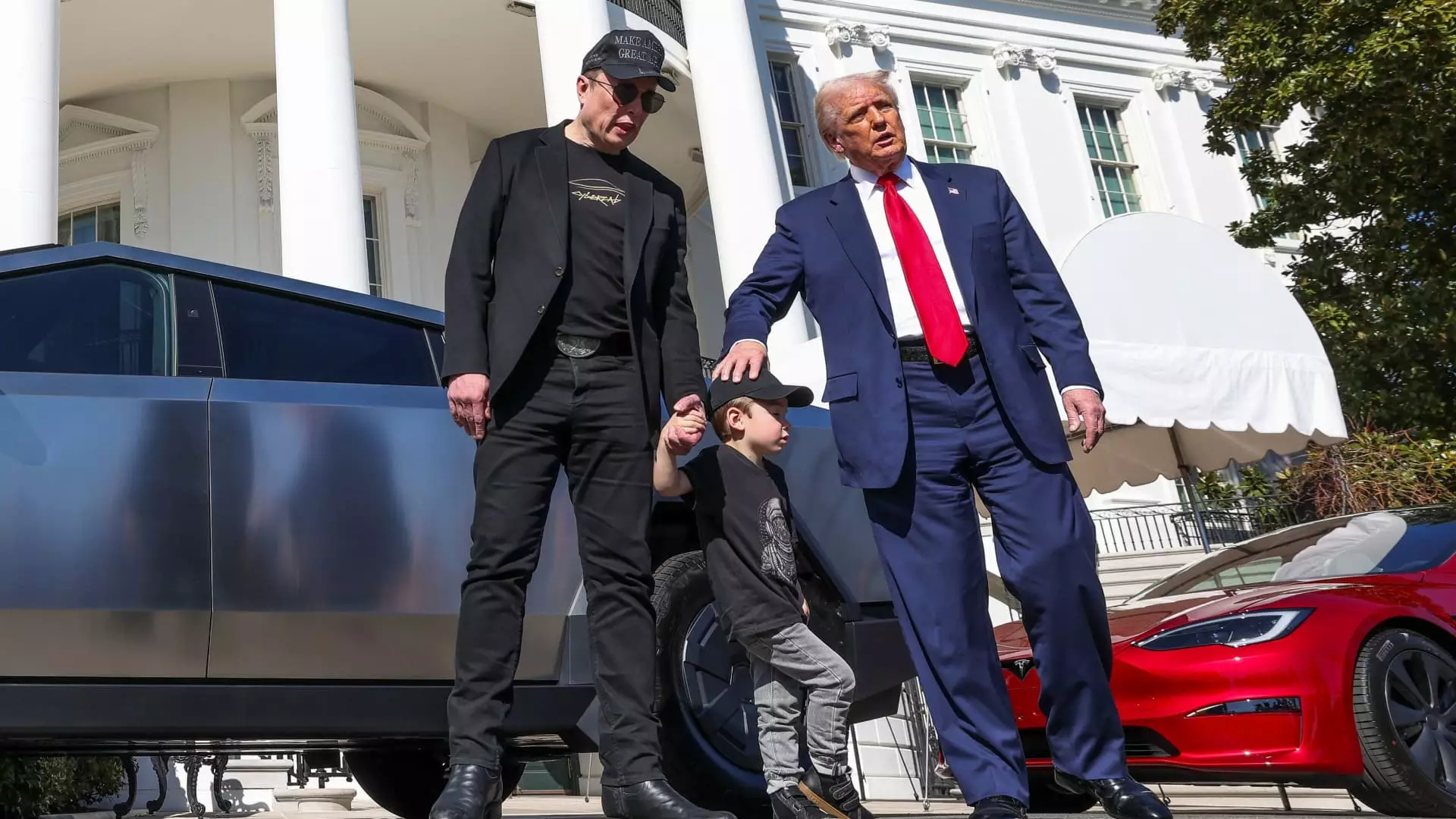Elon Musk, the visionary CEO of Tesla, recently found himself in a precarious position as the automotive industry faces tumultuous tariff-related challenges. During a quarterly earnings call, Musk emphasized his ambivalence toward high and unpredictable tariffs, stating that the ultimate decision rests in the hands of the U.S. president. This sentiment reflects the broader anxieties within the automotive sector, where tariffs can fundamentally alter the landscape in which companies operate.
With a palpable sense of urgency in his voice, Musk pointed out that Tesla has strategically positioned itself to mitigate some of the adverse effects of tariffs. By developing localized supply chains across key markets like North America, Europe, and China, Tesla is perceived as “the least-affected car company” in this regard. However, a closer examination reveals that while Musk may feel insulated from certain tariff impacts, the financial health of Tesla is distressing. The company reported a staggering 20% year-over-year decline in automotive revenue alongside a dramatic 71% drop in net income. Such figures illustrate that even a seemingly resilient company like Tesla cannot escape the repercussions of the larger economic environment.
The Impact of Presidential Policies
The relationship between Musk and the U.S. administration has been complex, characterized by a mix of camaraderie and conflict. Despite being one of President Trump’s closest advisers, Musk has openly criticized tariff strategies, notably lambasting Peter Navarro, Trump’s chief trade adviser, in a moment of candor that many saw as indicative of his frustrations. Tesla’s stock price has plummeted amid tariff speculation, further complicating Musk’s position at the helm.
Interestingly, Musk articulated a nuanced view that goes beyond mere opposition to tariffs. He acknowledged the need for countermeasures against countries engaging in “predatory” tariff practices or subsidizing local industries disproportionately. This perspective suggests that Musk is not against tariffs per se, but advocates for a more equitable global trading framework. Such advocacy for “predictable tariff structures” and “free trade” highlights his forward-thinking approach, but it does not diminish the immediate pressures Tesla faces.
The Challenge of Supply Chains
One of the critical discussions during the earnings call centered around Tesla’s reliance on international supply chains, particularly for essential components like battery cells. While Musk noted Tesla’s domestic production capabilities, he identified a significant challenge: the dependency on lithium iron phosphate battery cells sourced from China. The looming threat of tariffs presents a formidable obstacle as the company aspires to localize battery production further.
Musk’s acknowledgment of Tesla’s efforts to establish local manufacturing capacity reflects a proactive strategy aimed at reducing foreign dependency. However, his candid admission that “we can only serve a fraction of our total installed capacity” with current local equipment reveals the daunting reality of transitioning supply chains. While innovation is key, the timeline for establishing alternative sources remains a source of uncertainty. This challenge is amplified by the fact that many materials and parts still rely heavily on international suppliers, necessitating a delicate balancing act.
Vocal Advocacy and Future Implications
Musk’s willingness to share his insights with the president underscores the dynamic interplay between business leaders and government policymakers. His belief that he can influence decision-making is indicative of his self-assuredness and understanding of the stakes involved. However, the reality remains that economic policies often extend beyond individual preferences, shaped by a myriad of domestic and geopolitical considerations.
In this highly competitive industry, the capacity for resilience while navigating tariffs will be a defining factor for Tesla’s future prospects. Musk’s public advocacy for lower tariffs reflects a broader desire for a favorable business environment, yet the road ahead is fraught with uncertainty. As Tesla continues to grapple with its financial struggles amidst external pressures, how it manages its supply chains, production capacity, and relations with policymakers could dictate its trajectory in the evolving marketplace.
Musk’s candidness during the earnings call serves as both a reflection of personal conviction and a broader commentary on the state of the automotive industry. As he faces challenges from unpredictable tariffs and fluctuating revenues, the question remains: will Tesla thrive in this tumultuous environment, or will external factors constrain its growth potential? The answer lies not only in Musk’s vision but also in the broader economic landscape that shapes the reality of international trade.

